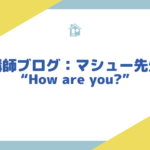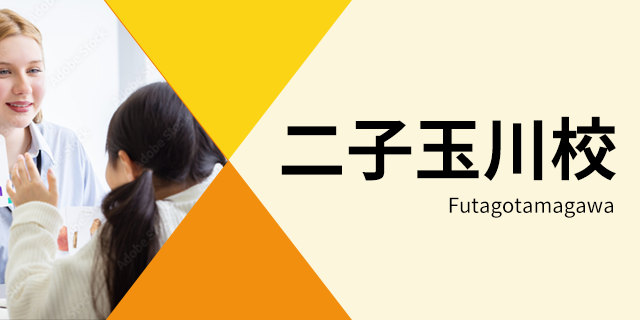(下に日本語訳があります)
Many words that we use today are completely made up. English is always changing. I was talking with a student recently about how English is not the same today as it was hundreds of years ago – even 20 years ago! This comes from a plethora of reasons including science and culture. It’s important for everyone to continue to study English. Returnees coming back to Japan should continue to keep their English fresh. These made-up words are what makes English fun and modern!
Some examples of words that are made up include robot and Google! Today AI is becoming more and more common, but also more popular! Robot is a newer word that originates from the Czech word “robota” which was coined by Karel Čapek in the 1920s. Now we use the word every day when we are talking about science fiction films or even visiting a fun restaurant in Tokyo. Google is the name of a company, but we also use the word as a verb! It means to look something up. Google is only 26 years old, meaning that this is also a newer word that started being used near the dawn of the Internet.
A second set of examples are called portmanteaus. This is a difficult word that we use to call words that are combined. A common example is “brunch”. Taking breakfast and lunch equal brunch! This word is typically used in restaurants as some even have a brunch menu. Another such word is “smog”. This is the combination of “smoke” and “fog”. One of the most famous examples of smog comes from London in 1952. The London Smog was so bad that people couldn’t see clearly (thankfully it is better now)!
With the modern generation, slang is always the most common example of made up words. Some of the words include “selfie”, “stan” and “binge watch”. The word “selfie” just means to take a picture of yourself while holding the camera. Today, phones have a “selfie camera” and the word sees popular use. “Stan” is an example of a pop culture figure creating a word. “Stan” simply means a devoted fan and was created by Eminem. He is a great example of someone who not only creates new meaning for words or names, but also changes the pronunciation of words to make them fit his music. He even manages to make words rhyme that typically can’t, such as the word “orange”.
Another example of an influential pop culture figure impacting English is the now distant William Shakespeare. Today, his stories and plays are the stuff of legend. English speakers from all over the world read his tales in school and in their free time. Some such stories are “Romeo and Juliet” and my favorite, “Macbeth”. Many people find the wordage to be complex and challenging due to a combination of old English being used, an unusual style and many made up words. In fact, Shakespeare is known to have created or changed the meaning of some 1600 words. While Shakespeare was conducting his plays around 400 years ago, we still use some of his words in common English. These include “bedroom”, “lonely”, “manager”, “eyeball” and even the idiom “wild goose chase”! Without Shakespeare’s creativity and imagination, our bedroom might have a completely different name.
Why does this matter? It’s important to understand that English is ALWAYS changing. Every generation has some new words that they use everyday. Some of these words stick and we will continue to use them in the future. That is why we must continue studying English. With a world that is continually changing, our languages do too! If we stop studying, then our English will sound funny and old fashioned. Some people might not even be able to understand what we say.
Lucas
私たちが今日使っている多くの言葉は、常に新しく作られ続けています。英語は常に変化しています。私は最近、英語が今日では数百年前とは同じではないということについて生徒と話しをしました。 ― 20年前とさえも同じではありません!これは、科学や文化を含む非常に多くの理由から来ています。すべての人が英語を学び続けることは大切です。日本に帰ってきた帰国子女は、英語を新鮮なまま保ち続けなければいけないです。なぜならこれらの作られた言葉こそが、英語を楽しく現代的にしているからです!
新しく作られた言葉のいくつかの例には、robot(ロボット)やGoogle(グーグル)などがあります!今日ではAIがますます一般的になっていて、同時により人気にもなっています!robotは比較的新しい言葉で、1920年代にカレル・チャペックによって作られたチェコ語の「robota」に由来します。今では、SF映画について話すときや、東京の楽しいレストランに行ったときでも、この言葉を日常的に使っています。Googleは会社の名前ですが、私たちはこの言葉を動詞としても使います!それは「何かを調べる」という意味です。Googleはわずか26歳でインターネットの夜明けとともに使われ出したさらに新しい言葉です。
2つ目の例は、portmanteaus(ポートマントー語)と呼ばれます。これは、組み合わされた言葉を呼ぶときに使う難しい言葉です。一般的な例は「brunch」です。breakfastとlunchを取って、brunchになります!この言葉は通常、レストランで使われていて、ブランチメニューがある店もあります。もう一つの言葉は「smog」です。これは「smoke」と「fog」の組み合わせです。スモッグの最も有名な例の一つは、1952年のロンドンに由来します。ロンドンスモッグはとてもひどく、人々は周囲をはっきりと見ることができませんでした(ありがたいことに、今は良くなっています)!
現代では、スラングは最も一般的な作られた言葉の例です。いくつかの言葉には、「selfie」、「stan」、「binge watch」などがあります。「selfie」という言葉は、単にカメラを持って自分の写真を撮ることを意味します。今日では、スマホには「selfie camera(自撮りカメラ)」があり、この言葉はよく使われています。「stan」は、ポップカルチャーの人物が言葉を作った例です。「stan」は単に熱心なファンを意味し、エミネムによって作られました。彼は言葉や名前に新しい意味を与えるだけでなく、自分の音楽に合わせて言葉の発音を変えてしまう人という素晴らしい例です。通常は韻を踏めないような言葉でさえ、例えば「orange」のような単語でも、彼の手にかかればうまく韻を踏ませることができてしまいます。
英語に影響を与えた別のポップカルチャーの人物の例は、今では遠い存在となったウィリアム・シェイクスピアです。今日、彼の物語や戯曲は伝説的なものです。世界中の英語話者たちが、学校や自由時間に彼の物語を読みます。そのような物語には「ロミオとジュリエット」や、私のお気に入りである「マクベス」などがあります。多くの人々が、古い英語の使用、独特なスタイル、多くの作られた言葉の組み合わせによって、彼の言葉遣いを複雑で難解だと感じています。実際、シェイクスピアは約1600語の言葉を作った、または意味を変えたとされています。シェイクスピアが彼の戯曲を上演していたのは約400年前のことですが、私たちは今でも彼の言葉のいくつかを日常英語で使っています。それらには「bedroom」、「lonely」、「manager」、「eyeball」、さらにはイディオムである「wild goose chase(無駄な追跡)」さえ含まれています!シェイクスピアの創造力と想像力がなければ、私たちのbedroomは全く違う名前になっていたかもしれません。
なぜこれが重要なのでしょうか?それは、英語が常に変化しているということを理解することが重要だからです。すべての世代が、日々使っている新しい言葉を持っています。その中のいくつかは定着し、私たちはそれらを今後も使い続けるでしょう。だからこそ、英語の勉強を続けなければならないのです。世界が常に変化しているように、私たちの言語も変わっていきます!もし勉強をやめてしまえば、私たちの英語は滑稽な、時代遅れの言葉に聞こえてしまうかもしれません。さらには人によっては、私たちが言っていることが理解できないかもしれない可能性さえもあるのです。
ルーカス先生:先生紹介








